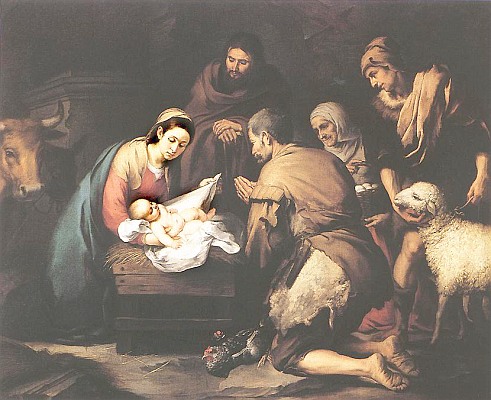

From: Isaiah 52:7-10
The Messenger of Peace
[11] Depart, depart, go out thence,
touch no unclean thing;
go out from the midst of her, purify yourselves,
you who bear the vessels of the Lord.
[12] For you shall not go out in haste,
and you shall not go in flight,
for the Lord will go before you,
and the God of Israel will be your rear guard.
*********************************************************************************************
Commentary:
52:7-12. Salvation is approaching; it has reached the gates of Zion, and its herald
is the messenger “who publishes salvation” (v. 7), proclaiming that the Lord is re-
turning to his holy city, like a victorious king coming back with his men, having re-
deemed them from their captors (vv. 7-8). This victory parade includes songs of
joy extolling the salvation brought about by the Lord, and also a pressing call to
purification, to ensure that those who welcome the Lord are worthy to form part
of his holy company (vv. 11-12). These verses form the famous poem of the “mes-
senger of peace” who “brings good tidings”. The ideas of the first oracle of this
second part of the book (40:1-11) are repeated here very beautifully. The messen-
ger’s feet are praised — a symbol of his speed and surefootedness when crossing
the mountains, which is where important news comes from (cf. 40:9). His mes-
sage (v. 7) is described very significantly as involving “peace”, which in Isaiah
means safety in Israel after the hardships of exile; “good tidings” or, more literal-
ly, “news of goodness and well-being”, that is, genuine material and spiritual
prosperity; and “salvation”, which is permanent renewal on all levels. The three
words read together mean the highest degree of happiness imaginable. The core
of this message is the enthronement of God: “Your God reigns,” similar to 40:9:
“Behold your God.” What is new about this poem is that it depicts God as the
king of Zion (cf. 24:23). The kingdom of God is sublime; and only analogically is
it comparable to earthly kingdoms, as can be seen in the psalms of divine king-
ship (Ps 47:8; 93:1; 96:10; 97:1), and, much more fully; in the New Testament,
which records Jesus’ preaching centered on the Kingdom of God.
As in a stage play, the arrival of the messenger, which is really the same thing
as the arrival of God as king on Zion, causes the watchmen to raise shouts of
joy that resound across the city (v. 8). Those whose job it was to give warning
of any threat now provoke unconfined joy because of the “return of the Lord to
Zion” (v. 8; Ezek 43:1-5).
In a beautiful personification, the “waste places of Jerusalem” are called to join
in the watchmen’s song (v. 9). The restoration has come, and the credit must go
to the Lord, for he has bared his holy arm a symbol of vigorous action, as in the
time of the exodus (v. 10; cf. 40:10, 5 1:9; Ps 98:1).
The short hymn at the end (vv. 11-12) is an exhortation to be cleansed from every
trace of Babylonian idolatry and to follow the Lord’s path, who, in the early trek
through the wilderness (cf. Ex 13:21-22), travels at the head of the company and
is also its rearguard.
St Paul quotes the words of v. 7 in Romans 10:15 when he is making the point
that preaching is necessary if the Gospel is to be spread. So, they are an abi-
ding call to apostolate.
The words of this oracle (especially v. 11) have also been applied by Christian
tradition to those who have pastoral responsibilities: “A pastor should be a man
whose thoughts are pure and purified. No stain should mar the character of the
man who holds the office of pastor; thus shall he be able to cleanse the impurity
of those in his care. The one whose work it is to purify stains must have clean
hands, to ensure that, when he seeks to cleanse, he does not soil his charges
more. The prophet says: purify yourselves, you who bear the vessels of the Lord.
Those who are entrusted with leading souls along the path of faith to their eternal
home bear the vessels of the Lord. Consider carefully, then, how pure they must
be who have devoted themselves to the task of bearing living vessels to the
eternal Temple” (St Gregory the Great, “Regula Pastoralis”, 2, 2).
*********************************************************************************************
Source: “The Navarre Bible: Text and Commentaries”. Biblical text from the
Revised Standard Version and New Vulgate. Commentaries by members of
the Faculty of Theology, University of Navarre, Spain.
Published by Four Courts Press, Kill Lane, Blackrock, Co. Dublin, Ireland, and
by Scepter Publishers in the United States.